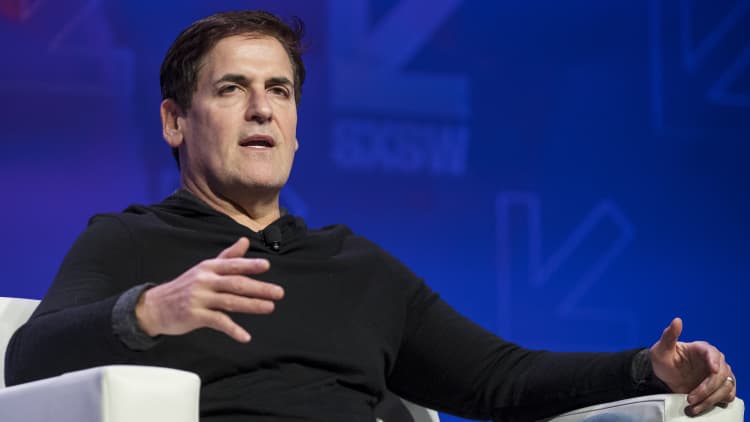Mark Zuckerberg and Elon Musk have a testy history of disagreeing about the potential for artificial intelligence, with Zuckerberg as the optimist and Musk as the prophet of doom.
But on Thursday in Paris at the Viva Technology conference, Zuckerberg ducked an opportunity to disagree with the Tesla and SpaceX boss, instead focusing on an area where the two tech titans have similar perspectives.
"I actually think that recently, I have heard Elon making a lot of the same points on this that I have been trying to make for a long time," says Zuckerberg, responding to a question about Musk's vocal skepticism about the future of AI.
"He has had a number of real incidents around car accidents. And he has had to deal with this issue, where you have a lot of AI critics who come out and say, 'Hey, is this too dangerous?'" says Zuckerberg.
"And I think he is making a point that I really agree with on this, which is that, look, over the long term, if we can get to a state where we have good self-driving cars — you know, one of the leading causes of people dying is car accidents — and if we can get to a state where we have good self-driving cars, then that is going to potentially massively reduce one of the leading causes of death and is a very important humanitarian thing that needs to done," Zuckerberg says.
Indeed, in May, the driver of a Tesla Model S had the car's semi-autonomous Autopilot mode engaged when she slammed in to the back of a fire truck in suburban Salt Lake City. The driver broke her foot. And in March, a Tesla Model X that was involved in a fatal car accident near Mountain View, Calif., had its Autopilot system activated. In fact Tuesday, days after Zuckerberg commented, a Tesla sedan in Autopilot mode crashed into a parked police cruiser in Laguna Beach, California. The Tesla driver "suffered minor injuries," according to a report from the Associated Press.
And May 2018 report from the U.S. Department of Transportation National Highway Traffic Safety Administration projects that 37,150 people died in traffic crashes in 2017. (This projection is set to be revised as data continues to become available, the NHTSA says.)
Facebook chief Zuckerberg did not specify which of Musk's comments he was referring to, but Musk recently tweeted his frustration with the media coverage of the Salt Lake City accident.
Musk acknowledged his Autopilot system needs to be improved, but he said using the system was safer than not.
It seemed to be that sentiment Zuckerberg was defending in Paris.
"Now, are there going to be issues along the way? Of course there are. No technology comes out fully formed and we need the pioneers to be able to go work on this and take the issue seriously in order to be able to make forward progress and get to the state that we want," says Zuckerberg. "But the point that I have heard him make recently, which I really agree with and I have been trying to make for a while, is that we need to make sure that we don't get too negative on this stuff, because it is too easy for people to point to an individual failure of technology and try to use that as an argument to slow down progress."
Zuckerberg says those who protest the implementation of artificial intelligence because of individual incidents during the developmental phase are getting in the way of important advancements.
"Fundamentally, I just think AI is going to unlock so much good around helping to cure diseases, to keep people safe, to keep our communities safe. And I do think that if you want to be out there saying that we need to slow down progress on this, then I think if you are doing that, you need to own some of the responsibility that every day that goes by that we don't have cures for those diseases, or safer self-driving cars, you know, I don't know that that is necessarily doing the world a service," says Zuckerberg. "That's my own personal stance. I am very optimistic on this, but we need to take the issue seriously which I do think the industry is and make sure that we move forward towards this greater good."
Zuckerberg's careful move to find common ground with Musk contrasts sharply with his language about Musk last summer.
In July 2017, Zuckerberg hosted a Facebook live one Sunday afternoon while he was smoking meat in his backyard in Palo Alto, California. A user submitted a question, which Zuckerberg read out loud: "I watched a recent interview with Elon Musk and his largest fear for future was AI. What are your thoughts on AI and how it could affect the world?"
Musk, earlier that month, had said that AI will cause massive job disruption, that robots "will be able to do everything better than us." He also said: "I have exposure to the most cutting edge AI, and I think people should be really concerned by it. AI is a fundamental risk to the existence of human civilization."
To that negative perspective, Zuckerberg had harsh words.
"I have pretty strong opinions on this. I am optimistic," says Zuckerberg. "I think you can build things and the world gets better. But with AI especially, I am really optimistic.
"And I think people who are naysayers and try to drum up these doomsday scenarios — I just, I don't understand it. It's really negative and in some ways I actually think it is pretty irresponsible," Zuckerberg said at the time.
At the time, Musk clapped back, undercutting the Facebook chief's understanding of the full potential of artificial intelligence.
"I've talked to Mark about this. His understanding of the subject is limited," Musk tweeted at the time.
See also:

Like this story? Like CNBC Make It on Facebook.


